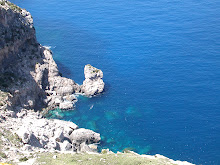Cuprins si Introducere
De-Centring Cultural Studies: Past, Present and Future of Popular Culture, Editors: José Igor Prieto-Arranz, Patricia Bastida-Rodríguez, Caterina Calafat-Ripoll, Marta Fernández-Morales and Cristina Suárez-Gómez, Cambridge Scholars Publishing, 2013
"The academic resistance that cultural studies has encountered remains
especially visible in Eastern and Southern European countries. One such
example is Spain, where cultural studies is seen at best as an emergent
research field. Hence the interest of this volume, conceived in Spain
by an all-Spanish editorial team and written by a diverse range of
authors who prove that, in spite of all difficulties, cultural studies
continues to bloom – even in Southern and Eastern Europe.The
different chapters offer interdisciplinary insights into a wide
selection of cultural materials whose relevance goes well beyond purely
aesthetic issues. Altogether, the volume (1) provides interesting
theoretical reflections on the subtle (yet arbitrary) borders between
popular and canonical culture; (2) explores how the popular culture of
yesteryear has influenced and inspired later “canonical” cultural
materials; and (3) studies how the reception of, and representation in,
popular culture can be accounted for from the crucially relevant
perspectives of gender and age.This collection of essays
studies and explores the connections between a wide range of materials,
including relevant examples of classic and contemporary literature,
Arthuriana, pop music and videos, political and mainstream film,
newspaper advertising, television, and the phenomenon of the
(trans)media star."







